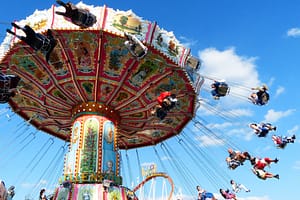Munich was founded (1158) by Henry the Lion, duke of Saxony and of Bavaria near a settlement (Munichen) that was established in Carolingian times. In 1255 it was chosen as the residence of the Wittelsbach family, the dukes of Bavaria and later became (1506) the capital of the dukedom.
During the Thirty Years War, Munich was occupied (1632) by Gustavus II of Sweden. In 1806 the city was made capital of the kingdom of Bavaria. Under the kings Louis I (1825–48), Maximilian II (1848–64), and Louis II (1864–86), Munich became a cultural and artistic center, and it played a leading role in the development of 19th- and 20th-century German painting. After World War I the city was the scene of considerable political unrest. National Socialism (Nazism) was founded there, and on Nov. 8, 1923, Adolf Hitler failed in his attempted Munich “beer-hall putsch”—a coup aimed at the Bavarian government. Despite this fiasco, Hitler made Munich the headquarters of the Nazi party, which in 1933 took control of the German national government.
Michael Cardinal Faulhaber, the archbishop of Munich, was one of the few outspoken critics of the National Socialist regime. In Sept., 1938, the Munich Pact was signed in the city; in 1939 Hitler suppressed a Bavarian separatist plot there. Munich was badly damaged during World War II, but after 1945 it was extensively rebuilt and many modern buildings were constructed.
Generally the sky line of Munich is not very high for the reason that the height limit on buildings (logically) was limited to the height of the fire engines of the day. As you look across the Munich skyline, church spires dominate. In 1973 it hosted the Olympic Games for which were built the Olympic stadium, and also the underground system. Munich remains the capital of Bavaria, and is where German chancellor candidate Edmund Stoiber has his seat of power.
Munich is one of the main cultural centres in Europe and anyone who’s anyone usually performs in Munich if they’re on tour. There are plenty of music and arts venues, and there is a wealth on offer. Munich also has a lively Theatre scene and, in fact has the largest number of small independent theatre houses in the country. The two biggest companies are the Staatschauspiel and the Kammerspiele.

